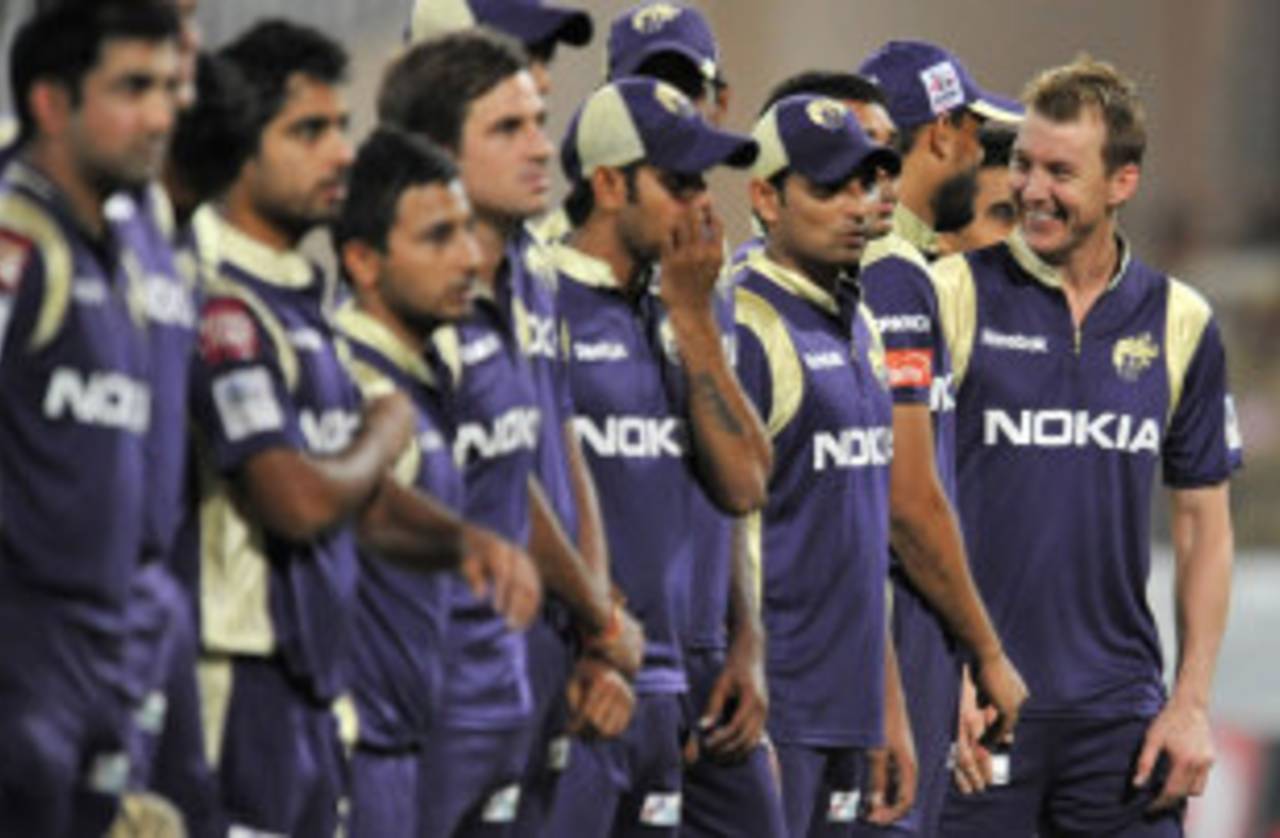Rudi Webster appointed KKR mental skills coach
In a first-of-its-kind in the IPL, Rudi Webster, the renowned sports psychologist, has been appointed by Kolkata Knight Riders as their mental skills coach for the fifth season
Nagraj Gollapudi
07-Mar-2012

One of Rudi Webster's tasks will be to bridge the gap between young Indian players and international stars • AFP
In a first-of-its-kind in the IPL, Rudi Webster, the renowned sports psychologist, has been appointed by Kolkata Knight Riders as their mental skills coach for the fifth season.
Webster, who has influenced minds like Viv Richards, Clive Lloyd, Greg Chappell, Brian Lara and Virender Sehwag, felt that there is a lot of value addition he can provide to the Kolkata players, especially in a pressure-filled Twenty20 environment where players "people tend to panic".
"A lot of people panic under these conditions. Usually, under pressure like that, people who stay calm and take step by step usually do better than people who panic and take bad decisions," Webster told ESPNcricinfo, explaining the need for someone like to him to sit on the coaching bench and an "asset" to have.
According to Webster, his primary job is to assist the coach and captain to get the best out of the players, and to help the players get the best out of themselves. The Barbados-born Webster, a former Warwickshire fast bowler with 272 wickets, had worked with the Indian team as a consultant during their West Indies tour in 2006 and briefly during the Champions Trophy later that year. It was in the West Indies where Sehwag, going through a slump in form and fitness, had a three-hour long chat with Webster, post which he admitted he had never chatted so "deeply with anyone." The transformation was immediate and Sehwag thanked Webster to clearing his mind.
The idea to get Webster came from Venky Mysore, the Knight Riders' CEO. Mysore, who joined the franchise last year, realised that the tight scheduling in an IPL season and a short time window was a big challenge for a team to come together. He consulted the pair of Gautam Gambhir and Trevor Bayliss, Kolktata's captain and coach, and the team management before calling up Webster.
"There is very little time for a diverse group of players to come together and get to know each other and then focusing on the common goals and align the individual objectives, which is a huge challenge," Mysore said.
There was also the possibility, at times, of a young Indian domestic player being overwhelmed in the presence of more experienced international players. "For an uncapped Indian boy to find himself in the presence of legends like Jacques Kallis or a Brett Lee in the set-up suddenly and say 'I am good enough' and be confident, it is always easier said than done."
Performance is built on four pillars: fitness, technical skill, strategy and tactics and finally the mental component. The first three of those components is controlled by the fourth - how well you express the skills and how well you set your strategy is controlled by how well you use your mindRudi Webster
Hence, Mysore felt the best way to groom young players was to get a professional on board, like Webster, who had the credibility and experience to interact individually with the players and that could bring comfort to the squad. "He is someone who can relate to the players and make a difference because of his experience of having worked with so many great players," Mysore said.
Webster said the reason he took it up was because it was a "different and new challenge." According to Webster, the performance problems remain the same across all three formats, the only difference being the pressure is condensed into a smaller time-span. "It is much quicker. There's a lot more pressure," he said. "The pressure is compressed into a shorter time, so in some respects it is slightly different from the longer formats."
Asked how he aimed to bring about a change, Webster pointed out that everything in sport is linked to performance. "Performance is built on four pillars: fitness, technical skill, strategy and tactics and finally the mental component. You must be strong in all four of them if you want to play well," Webster said. And most are inter-linked. "The first three of those components is controlled by the fourth - how well you express the skills and how well you set your strategy is controlled by how well you use your mind."
According to Webster, in any form of sport - shorter or longer version - it is the mental skill that determines how well the athlete expresses his physical skill. And that is where his role, as a mental skills specialist, comes to the fore.
Because of the demands on the players in a pressure-packed Twenty20 match, dealing with pressure is more important than in the other two formats. And being mentally confident becomes vital in such a scenario, but players are not so well trained in that area. "It is the pillar (mental) that has been neglected," Webster said.
Edited by Kanishkaa Balachandran
Nagraj Gollapudi is an assistant editor at ESPNcricinfo